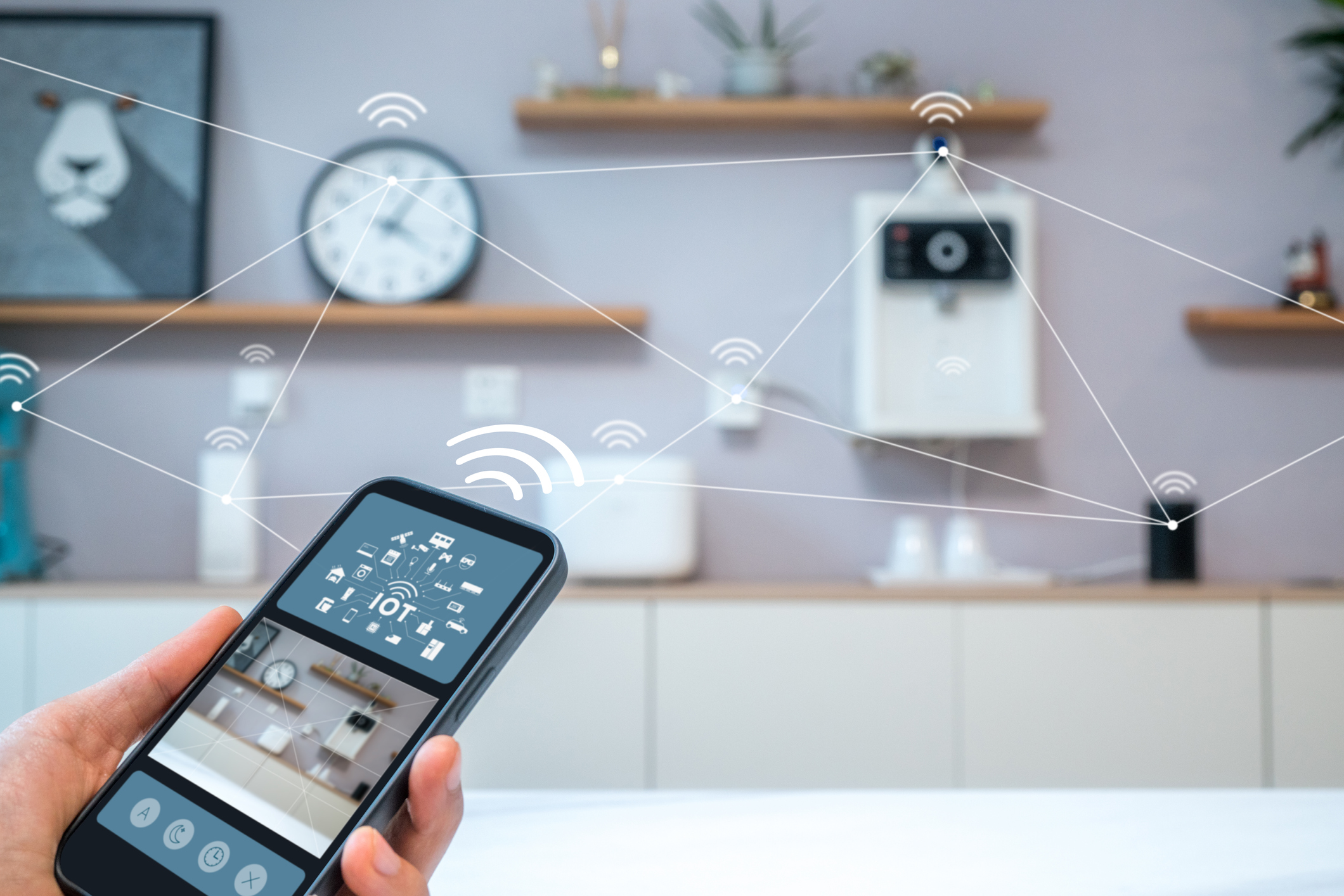The future has arrived with a high-tech bang when it comes to home, sweet home. Meet the "smart home," a modern concept turning the humble abode into a hub of connected technology. Let's delve into what a smart home really is, why it matters, and what it could mean for you and your family.

The basics of the smart home concept
A smart home is like giving your house a brain and a voice. Imagine talking to your home -- even better, imagine it listening and responding. This isn't science fiction; it's what happens when you integrate advanced automation, wireless communication, and voice commands into your living space. From controlling lighting with a smartphone to having a fridge that reminds you to buy milk, smart homes are redefining convenience.
What's the big idea with smart homes?
So, what's the difference between a smart home and a normal home?
- First off, there's the undeniable cool factor. There's just something irresistible about making a house do your bidding. But beyond that, smart homes offer a blend of efficiency, security, and convenience.
- They're energy savers, turning off lights and adjusting thermostats automatically. These power-saving changes can be scheduled to repeat daily or react to events like the sunrise and the weather.
- They're watchful guardians, with security systems you can monitor from miles away. Many smart-home front door locks come with integrated video cameras, allowing you to screen people at the door from the other side of the world and review video recordings as needed.
- And let's not forget the convenience of smart home controls. Smart home hubs come with sophisticated smartphone apps, where you can trigger any digitally controlled action with just a tap. Many also work with voice commands, so you don't even have to grab the phone to make things happen.
Why walk over to the light switch (or the front door, or the thermostat, or the smart TV set, etc.) when you can control anything from anywhere? You don't even have to be home, as long as you have an internet connection.
Embracing the smart home lifestyle
Maybe you're intrigued by the smart home concept and ready to take the next step. What's next?
First, think about what you need. Do you crave energy efficiency, top-notch security, or just the sheer convenience of voice commands? Then, consider the costs and the learning curve. Going smart can be an investment, both financially and in terms of time spent learning the ropes.
Remember, not all smart devices play well together, so choose a platform and stick with it. For example, your Amazon (AMZN -0.39%) Echo hub can't control Google's devices and services, and vice versa. There's no technical reason for this; the companies just don't want to support each others' smart home visions. However, smart home devices from smaller third-party companies tend to support the control hubs of every major smart home platform. It would be silly not to support them and skip a large portion of the potential customer demographic.
Your home might already be halfway in Alphabet's (GOOG -1.08%) (GOOGL -1.08%) smart home world if you have an Android phone and Android-based streaming media systems. Apple (AAPL -2.27%) offers its own smart home solution in the HomeKit framework, tightly integrated with Cupertino's famous iPhone ecosystem. It's a little harder to stumble into an Amazon smart home since the company doesn't make mobile phones, but its Alexa-based family of Echo devices can compete with the best of them.
It's not all wine and roses, though. Smart home systems often cost a good deal more than their un-networked alternatives. Despite the device makers' best efforts, anything connected to the internet can be targeted by remote hacker attacks. Some people avoid smart homes due to privacy concerns -- the video camera is always watching, the microphones are always listening, and what if that data falls into the wrong hands? And lastly, it can be very inconvenient when automation goes awry. How do you unlock the smart door if the power is out or the Wi-Fi connection is glitching? And how much time are you willing to spend on learning how to control all this stuff?
So, a smart home isn't for everyone, but it can be a serious timesaver and convenience booster if you're ready to deal with the possible downsides.
Every TV screen in my home is connected to a media-streaming device. My fridge, washer, and dryer all have Wi-Fi connections that come in handy sometimes. A smart lock might be on the horizon for my home, but as of November 2023, that particular piece of the puzzle remains to be added. This journey into smart home technology is an ongoing process. Much like Rome wasn't built in a day, the creation of a fully integrated smart home takes time and thoughtful consideration, even in our fast-paced digital world.
Your ideal smart home setup probably looks very different, but that's OK. It's a flexible system, and you don't have to install anything that makes you uncomfortable.



















